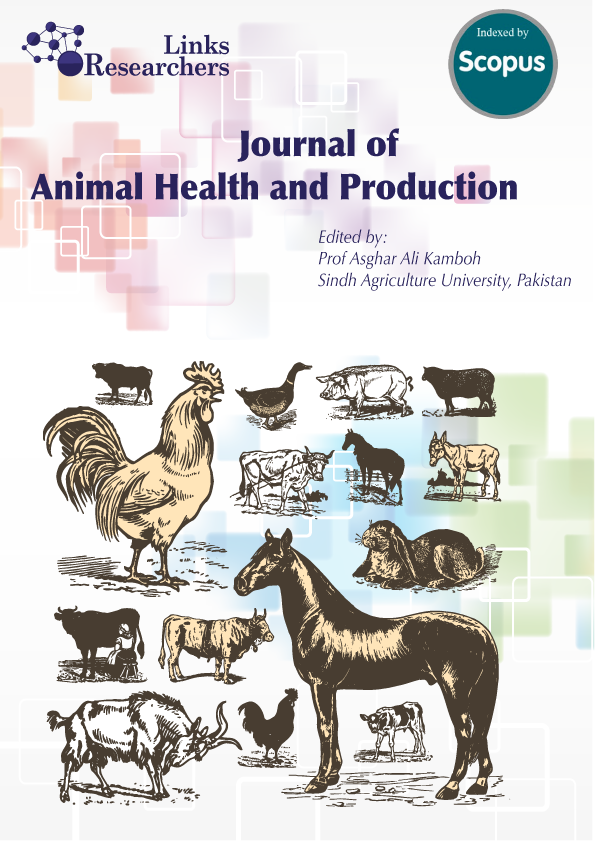Response of Reproductive Hormones in Vaccinated and Non-Vaccinated Pneumonic Female Goats Via Experimental Infection of Mannheimia haemolytica Serotype A2 Under Rainy and Hot Seasons
Response of Reproductive Hormones in Vaccinated and Non-Vaccinated Pneumonic Female Goats Via Experimental Infection of Mannheimia haemolytica Serotype A2 Under Rainy and Hot Seasons
Arsalan Maqbool1,2, Faez Firdaus Abdullah Jesse1,3*, Eric Lim Teik Chung3,5, Abd Wahid Haron3, Mohd Azmi Mohd Lila5, Bura Thlama Paul3,4, Khaliq ur Rehman Bhutto3,6
ABSTRACT
Pneumonic mannheimiosis is well documented in the literature focusing on the respiratory system of small ruminants from clinical and research perspectives. However, there is still a lack of understanding of this disease’s pathophysiological changes and impact on the reproductive system of affected animals. Therefore, the purpose of this study was to examine at the reproductive hormonal profile of female goats experimentally infected with Mannheimia haemolytica serotype A2 during rainy and hot seasons. Twenty-four healthy female, non-pregnant does were used, and divided into two equal groups, 12 does were further allocated into 3 groups (n=4), control, non-vaccinated and vaccinated in each season. After acclimatization and synchronization procedure, the vaccinated group was administered with 2 mL of alum-precipitated pasteurellosis vaccine while non-vaccinated and control groups were administered with 2 mL of phosphate-buffered saline (PBS) via the intramuscular route. At week 2, both non-vaccinated and the vaccinated groups were challenged intranasally with 2 mL of bacterial cell suspension containing 105 colony-forming unit (CFU) of M. haemolytica serotype A2. Blood samples were collected on weekly basis. The results revealed that the plasma progesterone concentration increased significantly (p<0.05) whereas estrogen, follicle-stimulating hormone and luteinizing hormone decreased significantly (p<0.05) in the non-vaccinated group compared to vaccinated and control groups in both seasons. The study outcomes shown that climate has neither significant effect on reproductive physiology nor exaggerated the effect on an experimentally infected animal. Furthermore, it is concluded that pneumonic mannheimiosis causes a negative impact on reproductive performance of the female goats where hormonal imbalances were observed which may result to pseudopregnancy or infertility in does infected with M. haemolytica serotype A2.
Keywords | Mannheimia haemolytica serotype A2, Does, Progesterone, Estrogen, Follicle-Stimulating Hormone, Luteinizing Hormone.
To share on other social networks, click on any share button. What are these?





